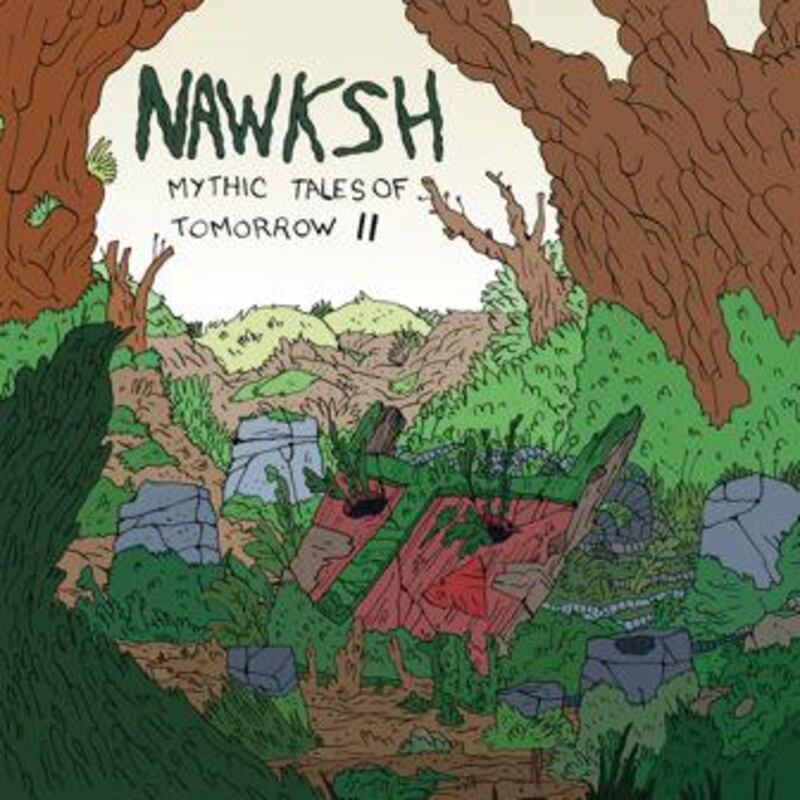Among a generation of forward-thinking electronic music artists emerging from Pakistan, Danial Hyatt has seen first-hand the dangers facing the country’s cultural pioneers.
His first show under the sobriquet Nawksh was supposed to be at Karachi’s The Second Floor (T2F), a hub of his home city’s burgeoning scene.
Instead, that day the venue played host to the funeral of its founder, human rights activist Sabeen Mahmud, who was killed by armed motorcyclists on April 24, 2015.
It's perhaps understandable, then, that escapism forms a sizeable part of Hyatt's world – something that's abundantly clear on Nawksh's debut album, Mythic Tales of Tomorrow II (a digital-only prequel can be found online). He describes his alter ego as "some parallel of what I do out here"; Nawksh is a character in a fantasy world called Ceratyl, in which the album is set.
“There is this endless supply of fantasy world happenings that I can’t ever shut off,” he says. “It’s a simulation in my mind that never ceases.
“Communicating all of it, though, goes against what I’m trying to do. I’d rather let people piece it together from what little information they can find.”
So far, so confusing, but there are some more tangible musical reference points, via psychedelic soundscapes infected with crackling beats that bring to mind Warp Records artists such as British producers Clark and Aphex Twin, as well as the open minds of leftfield American hip-hop producers.
Songs are predominantly short, sub-three-minute affairs (aside from the closing 12-and-a-half minute epic Exile & A Mirror), which Hyatt says is a reflection of his real-life attention span.
“I don’t usually listen to long tracks,” he admits. “I listen to a lot of hip-hop instrumentals, like J Dilla. Those beats are short and sweet and get the point across before you get tired of listening to it.”
The psychedelic elements can probably be attributed to his myriad other influences.
“I started out in a grunge band when I was 12. [And] I listen to a lot of radio, especially late at night when they play the older Pakistani and Indian music,” he says. Equally, Hyatt is not afraid to proclaim his love for the mainstream: “It’s not out of place to catch me listening to some Drake or whatever.”
Video games are also a big part of Hyatt’s life, as well as comic books, and increasingly bleed into his music.
“I spend more time with games, both playing them and working on them, than I do with music at the moment,” he says.
“Making a game is quite a logical process, whereas making music for me is primarily emotional. I’d like to use these other mediums as a way to fill the missing gaps [on the album].
“I’m working on a little game, to help contextualise this. I want to do something to make them more tangible. Hopefully, that’ll give my listeners some more clues about what’s going on in Ceratyl.”
Fearmongers and even murderers haven’t stopped Karachi’s creative souls, meanwhile. In June, the show originally cancelled for Mahmud’s funeral was resurrected as T2F’s 100th concert, featuring the same line-up.
“Making music at all is challenging here, in terms of societal restrictions and the industry, but people do it anyway,” Hyatt says.
“I don’t consider myself an experimental producer. I don’t know what kind of music I make – it’s just what I hear within. It’s always subject to change.”
Adam Workman is a production journalist at The National.
aworkman@thenational.ae





